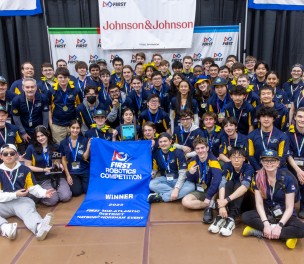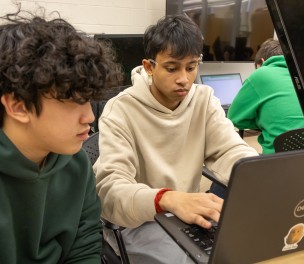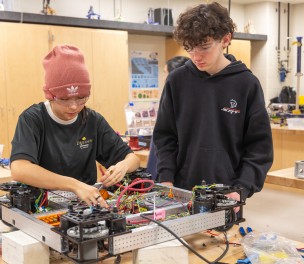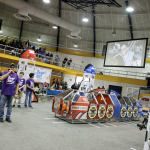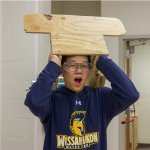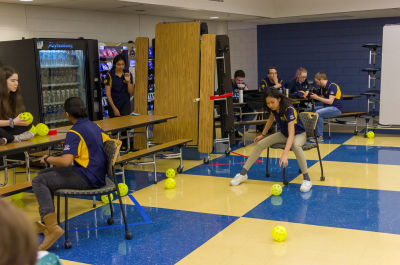 31 years of FIRST, and it just keeps getting better. I’ll do my best to tell you the story of this weekend’s kickoff for 2020’s game of Infinite Recharge, but it was a blur. Between the mock games and the strategy brainstorming sessions, there were a lot of ideas to process. The prevailing memory, however, were Saturday’s lunchtime tacos.
31 years of FIRST, and it just keeps getting better. I’ll do my best to tell you the story of this weekend’s kickoff for 2020’s game of Infinite Recharge, but it was a blur. Between the mock games and the strategy brainstorming sessions, there were a lot of ideas to process. The prevailing memory, however, were Saturday’s lunchtime tacos.
On any other early morning, I can promise that none of us would’ve been out of bed. Alas, we flocked to the school where we impatiently waited for the sweet, sweet sound of Dean Kamen, founder of FIRST, and his introduction. After watching the Twitch Livestream of this year’s game announcement, we immediately began with our yearly ritual of popcorn reading the game manual. At this point, it has become one of our team’s most sacred ceremonies. Granted, it doesn’t read like your favorite novel, but by the end of it even the rookies were able to get a general idea of the game’s structure.
Now that we all knew the basic rules, it was time to play! Yes! On day 1! Now! We all rushed to the cafeteria, where we were greeted by a crude version of Infinite Recharge, but for people! Robots became student-manned rolling chairs and the generator switches became folded lunch tables. Students played through the game in 10 second increments, stopping after each one to analyze their strategies. We spent quite a bit of time going through matches until we had a good idea of which tactics worked and which ones…didn’t. As it turns out, holding five balls in the fetal position in the middle of the field isn’t a viable strategy.
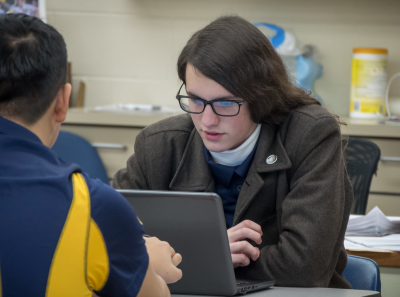 Finally, the team sat down at tables to get into the nitty gritty of our strategy. Splitting into groups, students were able to explore what tasks were worth pursuing. With this, students and coaches alike were well prepared to dive into this year’s weighted objective table. This glorified rating systems ranks robot capabilities based off of possible point yield, ease of design, ranking point contribution. Our team then votes on the importance of each, which leaves us with a list of priorities for our final strategy.
Finally, the team sat down at tables to get into the nitty gritty of our strategy. Splitting into groups, students were able to explore what tasks were worth pursuing. With this, students and coaches alike were well prepared to dive into this year’s weighted objective table. This glorified rating systems ranks robot capabilities based off of possible point yield, ease of design, ranking point contribution. Our team then votes on the importance of each, which leaves us with a list of priorities for our final strategy.
Thankfully, we made it out of the weekend with an idea of what we expect from this year’s game. After last year’s season, we’ve learned a lot about prioritization and planning. We’ve stepped into this new week eager to dig deeper into this season’s potential strategies and robot designs, and can’t wait to start prototyping!

